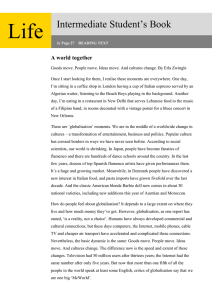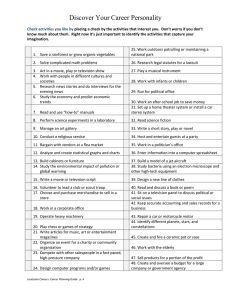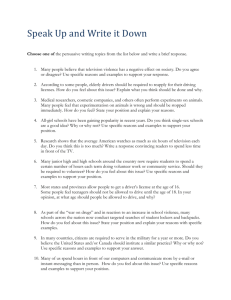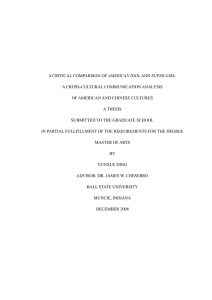ABSTRACT American Idol Communication Analysis of American and Chinese Cultures
advertisement
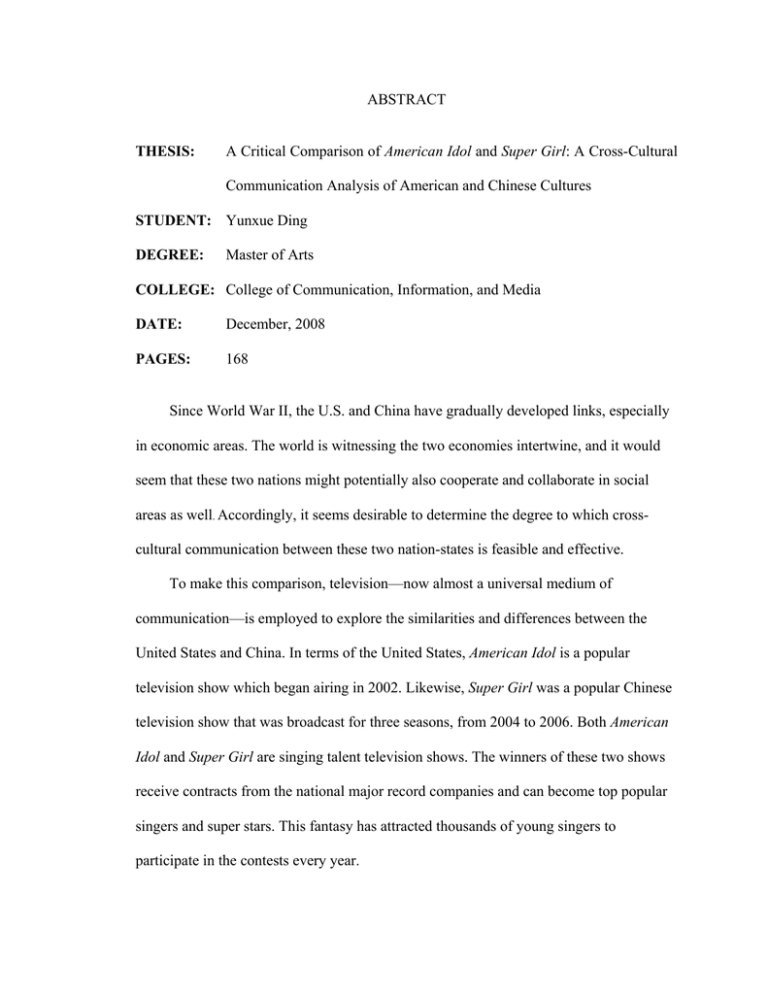
ABSTRACT THESIS: A Critical Comparison of American Idol and Super Girl: A Cross-Cultural Communication Analysis of American and Chinese Cultures STUDENT: Yunxue Ding DEGREE: Master of Arts COLLEGE: College of Communication, Information, and Media DATE: December, 2008 PAGES: 168 Since World War II, the U.S. and China have gradually developed links, especially in economic areas. The world is witnessing the two economies intertwine, and it would seem that these two nations might potentially also cooperate and collaborate in social areas as well. Accordingly, it seems desirable to determine the degree to which crosscultural communication between these two nation-states is feasible and effective. To make this comparison, television—now almost a universal medium of communication—is employed to explore the similarities and differences between the United States and China. In terms of the United States, American Idol is a popular television show which began airing in 2002. Likewise, Super Girl was a popular Chinese television show that was broadcast for three seasons, from 2004 to 2006. Both American Idol and Super Girl are singing talent television shows. The winners of these two shows receive contracts from the national major record companies and can become top popular singers and super stars. This fantasy has attracted thousands of young singers to participate in the contests every year. This study analyzes these two similar television shows, giving full recognition to the extremely diverse cultures in which they exist. Because of the differences between American and Chinese cultures, an eclectic approach would seem initially appropriate. The eclectic approach includes a combination of four research methods: content analysis; analog criticism; cross-cultural criticism; and fantasy theme analysis. The hypothesis of this study is that the same type fantasy generates different meanings and results in these two distinct cultures.

